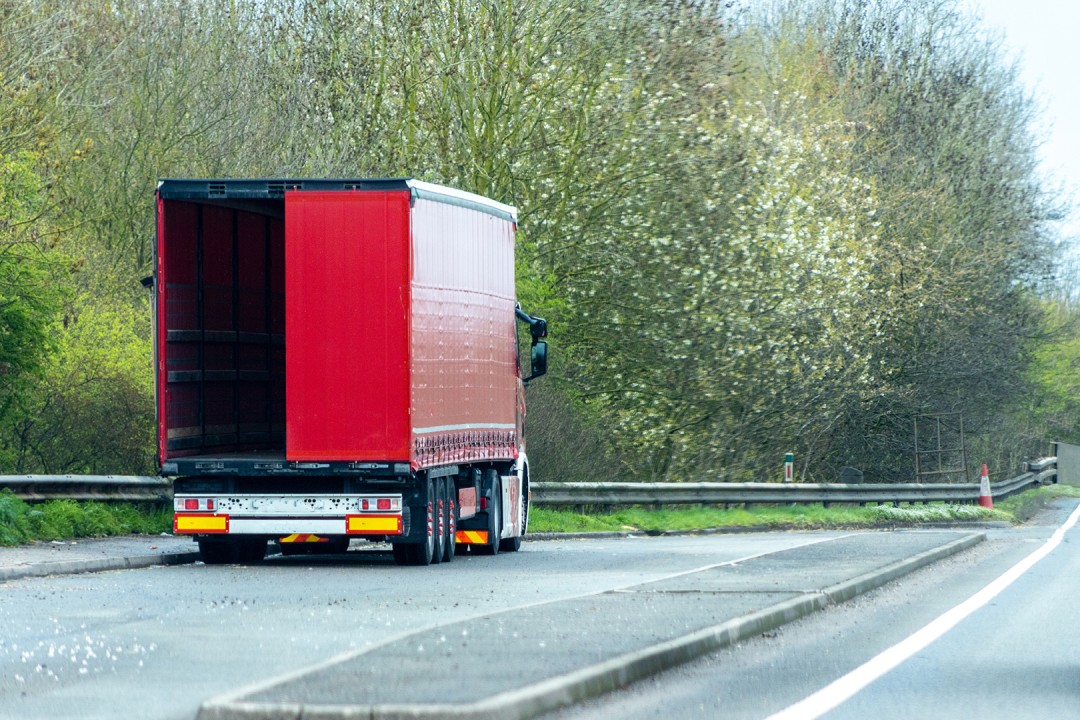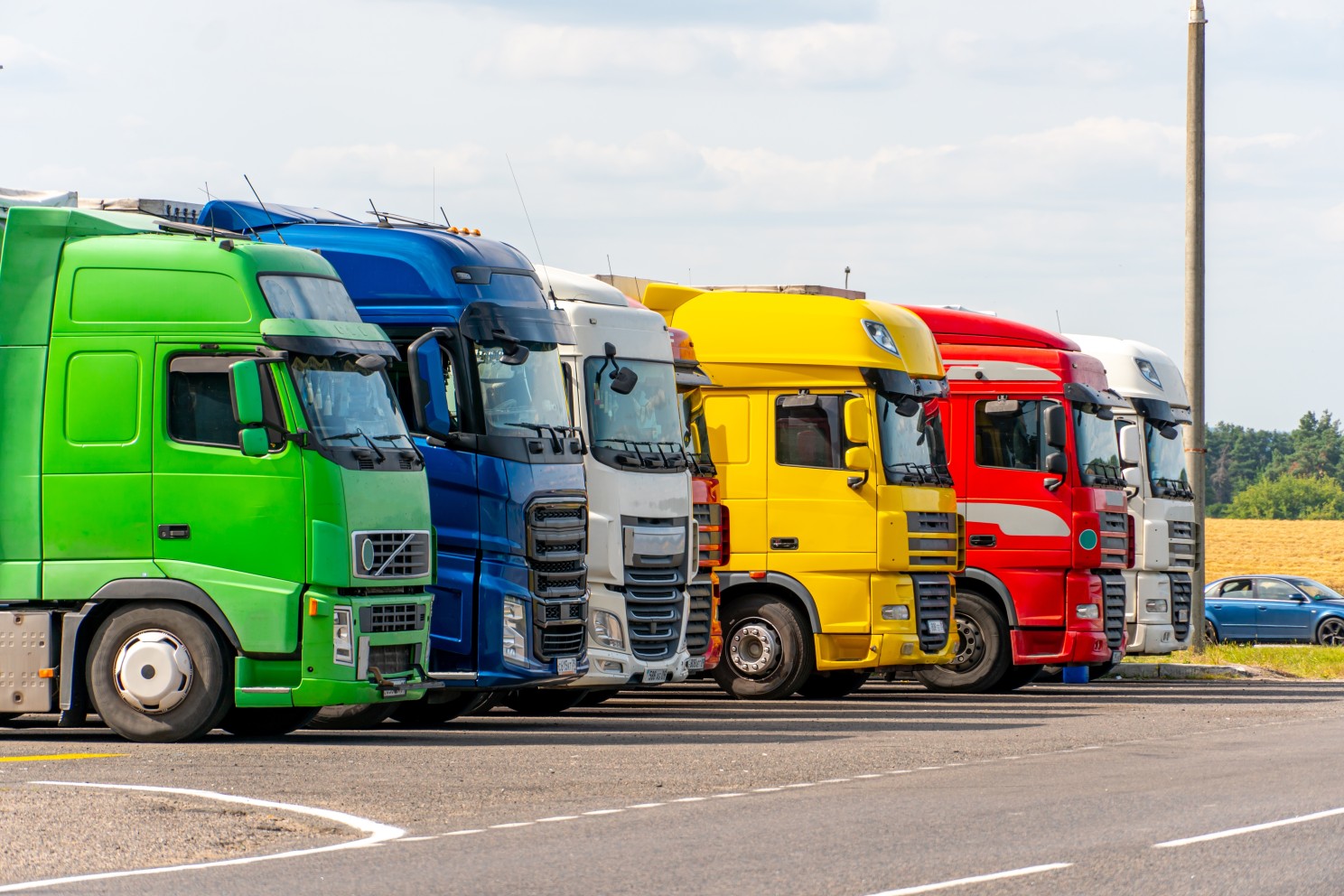
Susie Jones
Bilister vælger rastepladser frem for tankstationer
Oprettet: 19.08.2024
•
Opdateret: 19.08.2024
I 2022 blev der i Storbritannien anmeldt over [5.000] (https://x2uk.com/hgv-cargo-thefts-on-the-rise/) tilfælde af fragtkriminalitet - svarende til et tab på ca. 66 millioner pund. Øget fragtkriminalitet udgør en kritisk trussel mod forsyningskæder, virksomheder og forbrugere - og giver anledning til betydelig bekymring i transportbranchen.
Ifølge en rapport fra Cambridgeshire Police sker 46 % af alle lasttyverier på gader og rastepladser, og 27 % sker på servicestationer. På trods af dette viser social listening, at mange bilister fortsætter med at parkere på rastepladser af forskellige årsager.
Problemerne med parkering på rastepladser
For bilister er det ofte den mest enkle og økonomiske løsning at parkere natten over på en rasteplads. Men det har flere ulemper, som kan have en negativ indvirkning på chaufførens mentale sundhed og sikkerhed.
Faciliteter - Chauffører har brug for flere faciliteter, f.eks. toiletter, brusere og mad. Mangel på rene faciliteter kan øge ubehaget og have en negativ indvirkning på søvn, koncentration og mental sundhed.
Bilisternes sikkerhed - Parkering på rastepladser udgør en ekstra risiko for bilisternes sikkerhed. En undersøgelse foretaget af [AA] (https://www.transport-network.co.uk/Highways-AA-warns-of-danger-lurking-in-lay-bys/7695#:~:text=The%20Too%20close%20for%20comfort,the%20vehicles%20that%20are%20hit.) viste, at to tredjedele af dødsulykkerne med stillestående køretøjer på tosporede veje skete på rastepladser - over halvdelen af de påkørte køretøjer var lastbiler.
Lasttyveri - Branchen oplevede en 380% stigning i lasttyveri fra juni-juli i 2023, hvilket understreger behovet for sikker og tryg parkering. Når opportunistiske tyve går efter parkeringspladser, risikerer chaufførerne at miste deres gods, og flåderne risikerer at miste millioner af pund.
Hvorfor chauffører parkerer på rastepladser
På trods af risiciene viste social listening via [Facebook] (https://www.facebook.com/photo/?fbid=768988658604142&set=a.482170237285987&locale=en_GB), at 70 % af bilisterne var mindre tilbøjelige til at vælge en lastbilparkering frem for en rasteplads af flere grunde:
Sikkerhed
Feedback fra de sociale medier tyder på, at 43 % af lastbilchaufførerne vælger ikke at parkere ved et truckstop eller en tankstation på grund af manglende sikkerhedsforanstaltninger.
"Jeg parkerer kun på rastepladser eller i industriområder. Når jeg har parkeret på rastepladser, har jeg fået klippet gardinerne af," siger lastbilchaufføren Luke.
Sikkerheden på rastepladser i hele Storbritannien har været et varmt diskussionsemne i transportbranchen - og chaufførerne har bedt om mere støtte fra regeringen til at etablere yderligere sikkerhedsinstallationer. Ud fra tidligere tilbagemeldinger ønskede chaufførerne, at [HGV-afgiften] (https://motortransport.co.uk/industry-news/drivers-want-hgv-levy-funds-spent-on-truck-stops/17658.article) blev investeret i mere sikker, hygiejnisk og billig parkering.
På de sociale medier svarede 59 % af lastbilchaufførerne, at der ikke var tilstrækkeligt med sikre rastepladser i Storbritannien sammenlignet med Europa. En holdning, der understøttes af feedback fra [SNAP's Truck Park Tour] (https://snapacc.com/truckpark-tour-2023/), hvor 31 % af de europæiske chauffører sagde, at de havde mest gavn af adgangen til eksklusive, sikre SNAP-steder. Sikkerhedsorganisationen TAPA er bredt anerkendt i Europa - og mange steder har certificeringer på niveau 1, 2 eller 3.
I modsætning hertil er der kun to steder i Storbritannien, der har en TAPA-certificering - med SNAP PSR-uddannede autoriserede revisorer på niveau 3, der akkrediterer stederne. Formula Services og The Red Lion har begge en niveau 3-certificering - med én rapporteret lovovertrædelse på The Red Lion og ingen på Formula Services, på trods af beliggenheden i et område med høj kriminalitet.
Markus Prinz, Senior Manager of Standards, Training and Certification hos TAPA, forklarer: "Vi støtter fuldt ud alle aktiviteter, der skal sikre en effektiv og sikker parkeringsinfrastruktur for lastbiler og forbedre sikkerheden for lastbilchauffører, køretøjer og gods. Ved at tilbyde et åbent økosystem til teknisk og økonomisk optimering af sikker lastbilparkering mener vi, at overgangen til sikker lastbilparkering kan fremmes."
Virksomhedens modvilje
30 % af chaufførerne sagde, at deres flådefirmaer ikke var villige til at betale for lastbilstoppesteder eller servicestationer. En chauffør forklarede:
"Færre virksomheder betaler desværre for parkering om natten, anlæggene holder åbent med nød og næppe, skærer ned på personalet for at betale regningerne, og der kommer færre parkeringspladser ind."
Lastbiler stopper ved maksimal kapacitet
"Man kan se, hvilke stoppesteder der har sikkerhed, da de er fulde kl. 18."
70 % af chaufførerne gav udtryk for deres frustrationer over, at sikre rastepladser har maksimal kapacitet, så de ikke har andet valg end at parkere på en rasteplads. Feedback fra Truck Park Tour gav en lignende fornemmelse - mange gav udtryk for deres bekymring over, at de britiske rastepladser var fyldte før ankomst.
Data fra [TfL's] (https://assets.publishing.service.gov.uk/media/6454ab292f62220013a6a572/national-survey-of-lorry-parking-2022-part-one.pdf) undersøgelse af lastbilparkering i 2022 viser, at på trods af en stigning på 12 % i kapaciteten på stedet fra 2017-2022, er det ikke nok til at understøtte stigningen på 21 % i antallet af køretøjer i samme periode.

Reducering af overnatningsparkering på rastepladser
Offentlig finansiering
18 % af chaufførerne ønskede flere midler fra regeringen til at støtte sikkerhedsinstallationer. I september 2023 tildelte transportministeriet [8 millioner pund til 39 vejfaciliteter] (https://www.gov.uk/government/news/better-facilities-for-lorry-drivers-as-winners-of-8-million-funding-revealed) i hele England for at forbedre faciliteter og sikkerhed. SNAP's Access & Security-team er begyndt at støtte de virksomheder, der har fået støtte, ved at gennemføre deres forbedringer. Yderligere finansiering på op til 100 millioner pund er tilgængelig indtil 2025 under regeringens match-finansieringsordning.
Sikkerhedsinstallationer
For at skabe et trygt og sikkert område for lastbilchauffører kan rastepladser investere i robuste sikkerhedsinstallationer - produkter som CCTV, ANPR, samtaleanlæg, barrierer og kiosker styrker sikkerheden på stedet og afskrækker kriminelle aktiviteter. [SNAP Access & Security] (https://snapaccessandsecurity.com/) blander skræddersyede sikkerhedsprodukter og markedsekspertise for at beskytte mennesker, køretøjer og indhold på rastepladser.
Må lastbilchauffører sove i vejkanten i Storbritannien?
Siden 1. november 2017 har DVSA implementeret [nye regler] (https://www.rha.uk.net/news/news-blogs-and-press-releases/press-releases/detail/rha-warning-over-ban-on-drivers-sleeping-in-lorry-cabs) og bestemmelser om chaufførers hvile i f.eks. boligområder og på rastepladser. Chauffører kan få en bøde på op til 300 pund, hvis de tilbringer deres pause på en rasteplads eller i vejkanten.
Hvordan holder lastbilchauffører sig vågne under kørslen?
Lastbilchauffører skal følge fartskriver pauseregler af hensyn til deres egen og alle andres sikkerhed på vejen. Formålet med en fartskriver er at forhindre træthed hos chauffører og sikre, at chauffører og arbejdsgivere overholder reglerne.
På trods af dette er forebyggelse af kedsomhed og træthed på vejen en udfordring for mange chauffører og kan påvirke deres velbefindende. De fleste chauffører foretrækker at lytte til musik og podcasts, mens de er på farten, og trives med social interaktion med andre chauffører på rastepladser og servicestationer.
Må lastbilchauffører have passagerer med i Storbritannien?
Den gennemsnitlige lastbilchauffør tilbringer ca. 12 timer om dagen bag rattet. For at bekæmpe ensomhed og kedsomhed kan chauffører tage passagerer med, hvis de følger specifikke regler, der er beskrevet af FMSCA. Chauffører skal have skriftlig tilladelse fra deres virksomhed ved at indsende en passageransøgning - denne ansøgning skal angive turens varighed og datoerne.
De fælles krav er som følger: - Passagererne må ikke være gravide
De må ikke lide af alvorlige eller kroniske helbredsproblemer
De skal være ti år eller ældre
Sundhedsforsikring er påkrævet.


